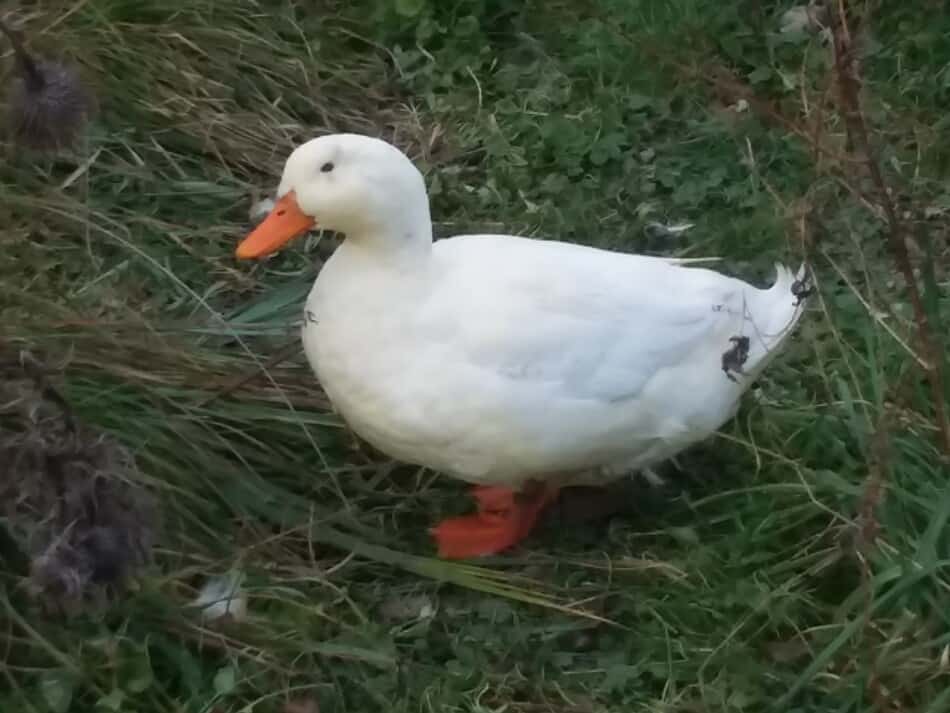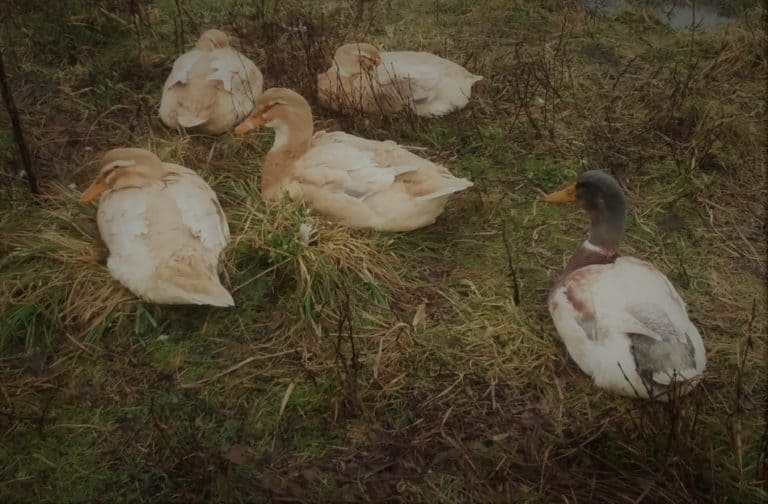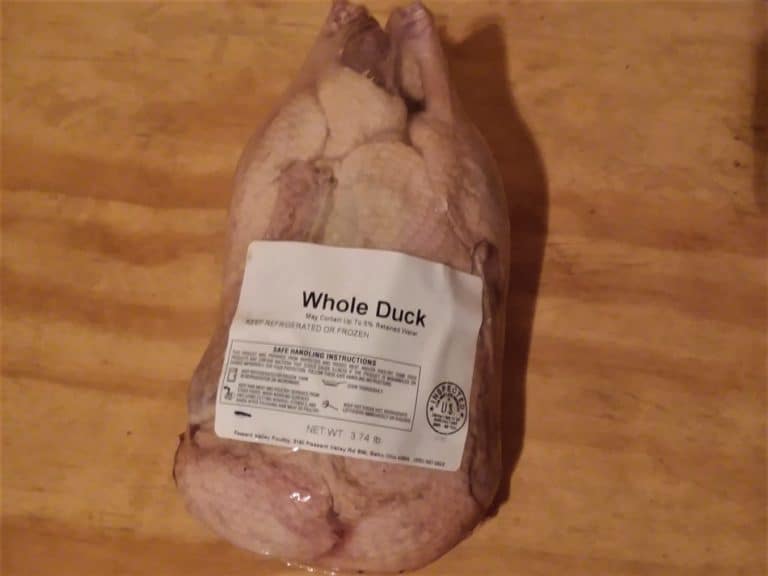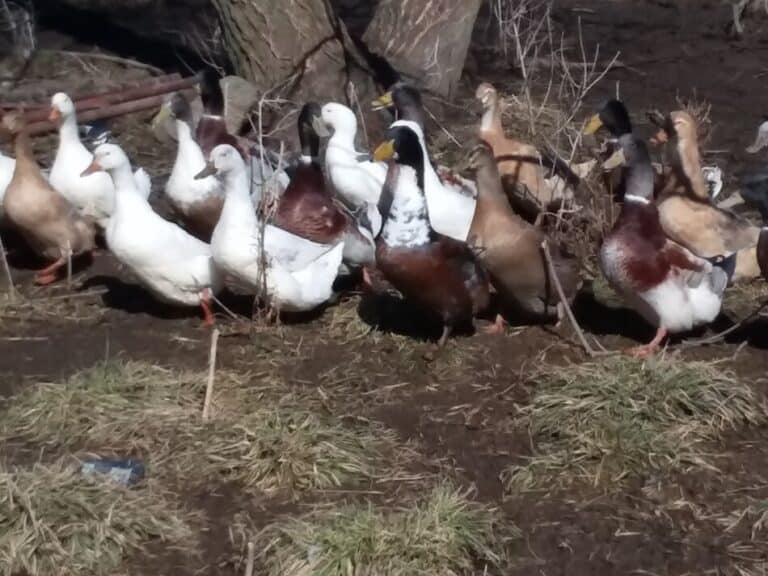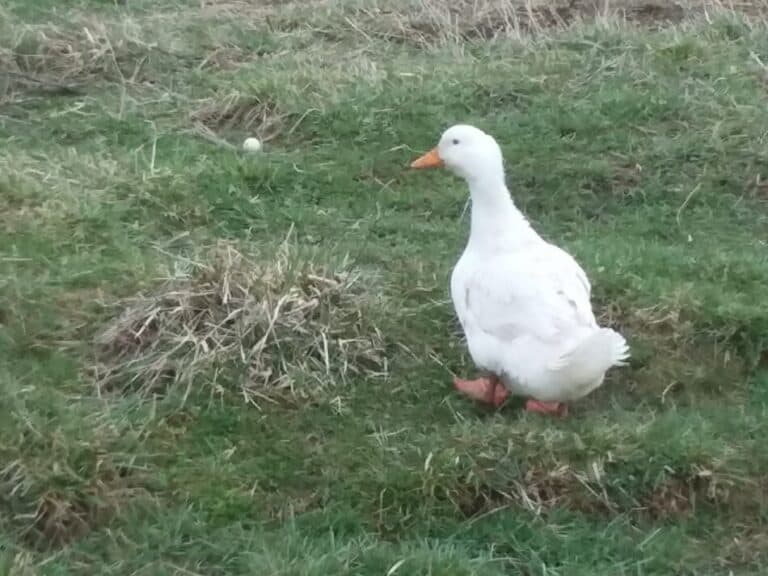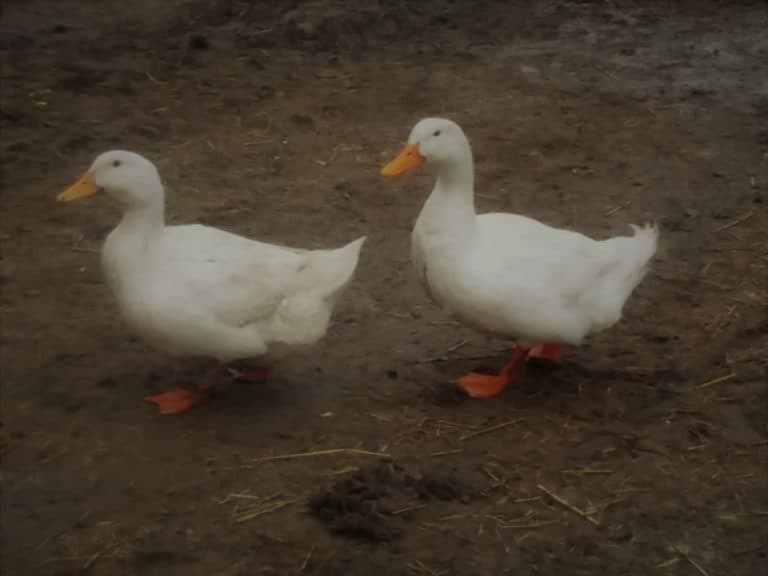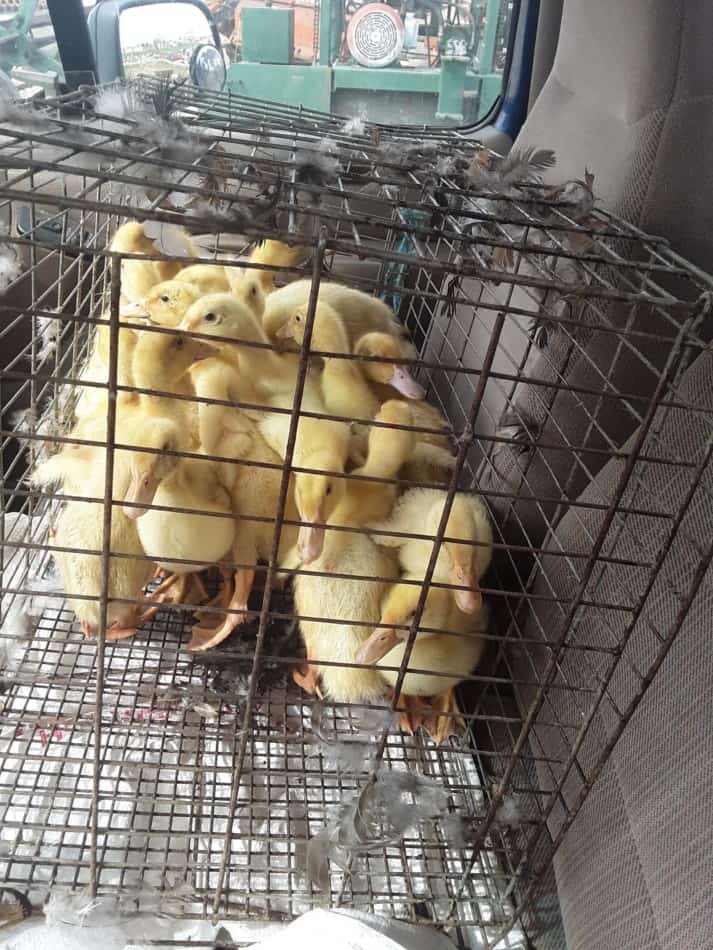Do Ducks Need A Coop To Live In?
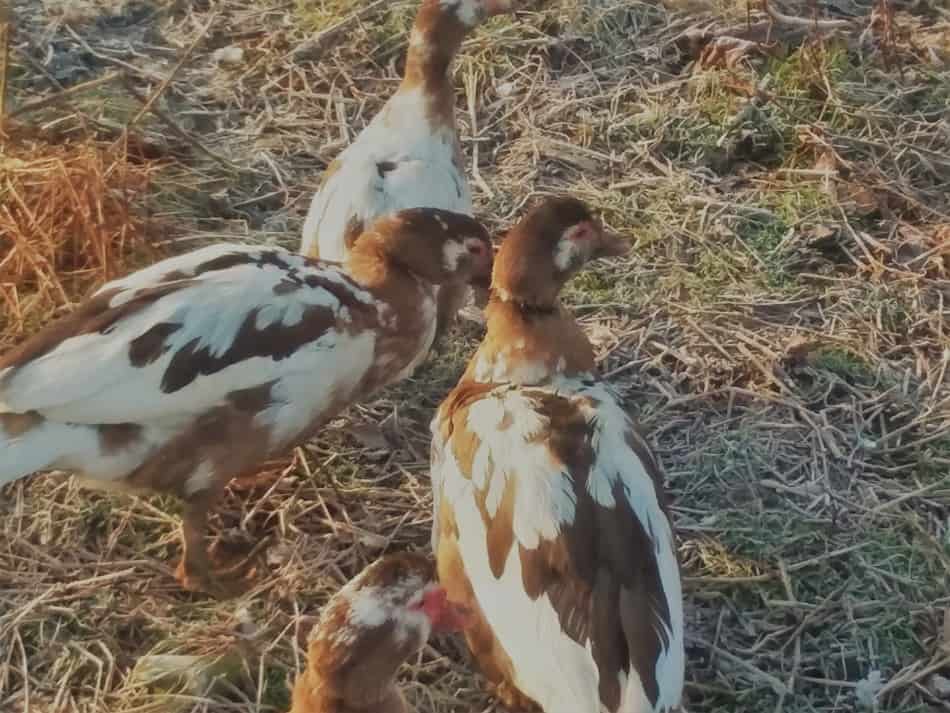
You’ve decided to get some ducks for your backyard. Nice! Ducks are fun, easy to care for and finally catching on as a great bird to raise.
Before your ducks arrive, you’ve got some things to figure out, like housing. Where will your ducks live and how elaborate does that duck house need to be?
Ducks in a low predation area need a simple shelter for shade and weather protection. Ducks in a high predation area need a secure enclosure like a coop.
16 Breeds Of Ducks For Eggs And Meat will give you an idea of what duck breeds might work for you and your situation.
How Much Room Do You Need To Raise Ducks? has tables to help you calculate the space your ducks need.
Ducks need a shelter, not necessarily a coop
Your ducks will need some sort of a shelter to live in.
The shelter can be as elaborate or simple as you would like it to be, as long as it provides night time protection and shade.
I’m defining a coop as a duck house that is enclosed and secure, whereas a shelter is more of a roof to keep the ducks out of the weather.
With a coop you have control over when the ducks leave the area, with a shelter, you don’t.
For example: If you want the ability to lock your ducks off of the yard in poor weather (more for the sake of the yard than the ducks), you’ll need a shelter with a small fenced yard or a coop.
A shelter for your ducks is inexpensive to build
Duck shelter pros:
- Less expensive to build
- Many options for materials and shape
- Easy to relocate around the yard
Duck shelter cons:
- No ability to contain ducks
- No predator protection
- Harder to keep bedding dry
A shelter for your ducks would be a much more simple structure of a bedded area covered with a roof.
Since ducks are short, a triangle shaped shelter works great for ducks. Or something as simple as a few pallets secured together.
The shelter provides shade and a spot to get out of the weather, but no containment ability.
The ducks can leave the shelter anytime they want to.
As long as the ducks are using the shelter, they like it. If they don’t use it, you’ll need to figure out something else.
If you need to be able to reliably contain your ducks for some reason, like predators, you’ll need to up your game to a coop so you can lock in the ducks and lock out the duck eaters!
A duck coop is secure
Duck coop pros:
- Easier to keep well bedded, since it sits higher than the ground
- Ducks can be securely locked in for the night
- Deters predators
- Keeps eggs in one place
Duck coop cons:
- More expensive to build
- Can get messy inside
- In summer can be hot inside coop
A coop for your ducks is a complete shed or part of a shed that can be closed to lock in the ducks.
You may need to lock in the ducks to keep them safe at night from predators or just to make sure all eggs are laid inside rather than all around the yard!
Your duck coop does not need to be a separate building or shed, if you don’t have one. It could be a sectioned off part of a garage or other area that you have available.
The main concern is that you can keep the ducks inside the area when you need to.
Our duck “coop” is just a pen in part of the barn that they walk into for feed and stay in overnight, that way we know where the eggs and nests are!
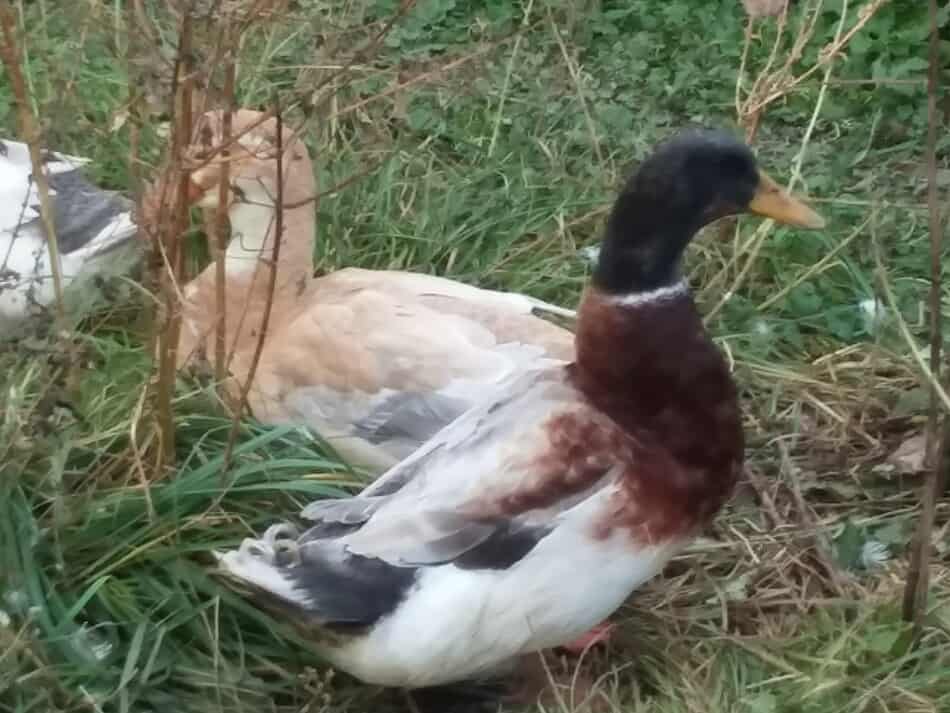
Ducks will return to their shelter at night
Don’t worry about putting your ducks back for the night. Ducks will return to their shelter when they think the time is right.
If you are wanting to make sure they are easy to bring in at night, just feed them in the coop or shelter before dark.
Your ducks will quickly learn that seeing you with a bucket of feed means they should start heading to the feeder.
You’ll be surprised at how fast they catch on to this one!
Make sure they have plenty of water to go with that feed and your ducks are good to go for the evening.
Ducks that stop using the shelter means something is wrong
If your ducks have all of a sudden decided that the shelter is not the place to be, look into it.
Check to make sure the bedding is dry, it’s out of the wind and lastly for signs of a predator.
Ducks like to be out in the winter
As crazy as it sounds, ducks like to be out in the winter!
Our ducks trot all over in the snow, but they always have a choice to be inside if they wish. The duck having a choice to be inside or outside is key.
If you give your ducks the option to choose where they spend the day, the duck will keep herself healthy.
When she wants to go back inside the shelter or coop, she will, as long as you have arranged the duck yard so that she has a choice.
If your duck raising situation requires locking the ducks out of their sheltered area for them to be outside for the day, then no, don’t let them out.
It is safer for the ducks to keep them inside in a well bedded, ample coop than making them stay outside in the winter for longer than they want to.
Domestic ducks do not fly away
You don’t need to worry about your domestic ducks flying away, they are too heavy to get off the ground for any distance.
Mallards can fly, Muscovys can fly a little
There are a few exceptions here that you should be aware of: Mallards and Muscovys.
The Mallards are a wild type (not a domestic type) of ducks that can and do fly.
Muscovy ducks can fly for a limited amount of time. This seems pretty crazy to say, especially for such a big bird, but yes, they can do some flying.
By flying I mean fly up to roost in trees or barn rafters or fly across your yard, not fly south for the winter!
I see our Muscovys fly 20-30 yards quite frequently, sometimes further if the wind is right.
They always stay home, because they like it here, but in all honesty, they could leave if they wanted to.
We’ve had a Muscovy drake show up that was not ours, he was a different color than anything we had, so I know it’s possible!
Here’s a link to Metzer farm, if you want to read up on the specifics of care for your chosen duck breed.
This site has tons of information on ducks and geese, I use it all the time!
